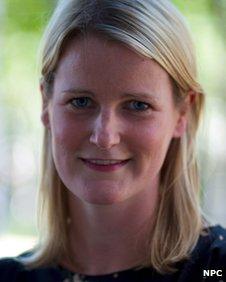The drive to make giving more effective
- Published

Funders want to make sure their money does not get wasted
If you've had a successful career and made a fortune of many millions or even billions, then deciding to give it all away to charity is not a decision to be taken lightly.
It is no wonder then that philanthropists are becoming more and more concerned that the money they are donating is being used effectively.
"I don't see it as giving it away. I see it as investing it for the common good," says British philanthropist Sir Tom Hunter.
"It's not just 'here's some money' - we really do see it as an investment. We're looking for a return - it's different to investing for profit, but we still want to measure things in charitable investments."
According to the Charities Aid Foundation, who surveyed those who made the 2012 Sunday Times Rich List - a list of the 1,000 wealthiest people and families in the UK - 88% say they will only invest in charities who demonstrate their impact clearly.
And 81% think that giving strategically is important.

Rachel Findlay from NPC says funders should not focus solely on admin costs
This notion of strategic philanthropy - giving designed around focused research and strategies to be as effective as possible - has grown in recent years.
Kurt Hoffman, the chief executive of the Institute for Philanthropy, says strategic philanthropy is an attempt to go beyond traditional charity, where you make contributions but don't really know what happens with the money.
'No market rules'
Several organisations now exist to advise those wishing to donate to good causes on how best to part with their wealth.
The Institute for Philanthropy was established in 2000 to work with philanthropists to increase effective giving.
"There's an assumption that all charities do equally well. That's not true. We need to find out which do better," says Mr Hoffman.
The trouble is: how do you measure which ones do better?
"It's difficult," Mr Hoffman admits. "There are no market-based rules or prices."
Rachel Findlay is the head of funder effectiveness at New Philanthropy Capital (NPC). She works with a wide variety of funders from individuals and families to corporates, larger trusts and foundations, advising them on how their funding can have the greatest impact.
Historically, she says, people have been very focused on looking at administration costs, but she encourages funders not to do so.
"Some charities have very high admin costs but are exceptionally well-run," she says. "If you have a charity that delivers food or clothes to Africa, would you rather they have good lorries and run them quickly, or cheaper ones that break down and aren't very efficient?"
Outputs v outcomes
Instead, NPC encourages funders to look beyond exactly what the money is being spent on, and to concentrate instead on what is actually being achieved.
"You could have a charity that works with a wide group of young people at a very light touch level, say once a week, while another might work more intensively with a smaller group, every day," Mrs Findlay says.
"So you can't always look at how many people you've worked with - the output. But you should ask how have you actually helped them - the outcome."
Nevertheless, charities are under pressure to show more hard data. For instance, how much grades have improved as a result of education programmes.
Kurt Hoffman from the Institute for Philanthropy says there is a "compelling" reason for both philanthropists and charities to measure impact.
"There is very little comparative analysis at the moment, if at all. That's where the sector has to head," he says.
Impact of downturn
The financial crisis of the last few years has also made funders keener to provide effective giving, according to Mrs Findlay.
Those that have an endowment - who put their money in a foundation, invest it and then use the interest to fund charitable projects - have seen lower financial returns on their investments in recent years.
Therefore they really want to focus on funding that makes a difference, she says.
But the crisis has also had a significant impact on charities, with many seeing government funding dry up, and leaving potential benefactors with the decision of whether or not they want to step in and replace that funding.
Another recent phenomenon is the social impact bond, which aims to use private investment to prevent social problems and save the public sector money.
Philanthropists and social enterprises are asked to provide advance funding to support schemes commissioned and delivered by public bodies, such as prisons and local councils.
They would be remunerated by the government if it is concluded that pre-determined outcomes have been achieved. The rate of return will depend on how well the schemes perform - the higher the social impact, the higher the return.
Some are sceptical about how successful social impact bonds will be in the long term, and others have criticised them for being just another name for privatisation.
But the ultimate aim is to use philanthropic money efficiently, and that is what philanthropists have been striving towards.